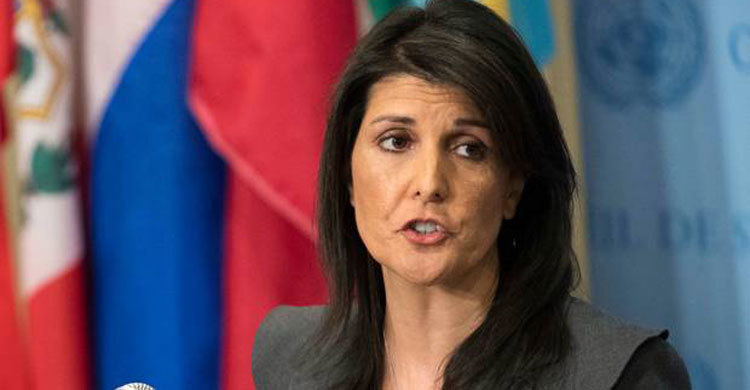US quits ‘biased’ UN human rights council

The US has pulled out of the United Nations Human Rights Council, calling it a “cesspool of political bias”.
The “hypocritical and self-serving” body “makes a mockery of human rights”, said US envoy to the UN Nikki Haley.
Ms Haley last year accused the council of “chronic anti-Israel bias” and said the US was reviewing its membership.
Formed in 2006, the Geneva-based council has been criticised for allowing countries with questionable human rights records to be members.
But activists said the US move could hurt efforts to monitor and address human rights abuses around the world.
Ms Haley announced the US’s intention to quit the council at a joint news conference with Secretary of State Mike Pompeo, who called the council “a poor defender of human rights”.
UN Secretary-General António Guterres, in a statement released through his spokesman, responded by saying he would have “much preferred” the US to remain in the council.
The UN human rights commissioner, Zeid Ra’ad Al Hussein, called the US withdrawal “disappointing, if not really surprising, news”. Israel, meanwhile, has praised the decision.
The move comes amid intense criticism over the Trump administration's policy of separating child migrants from their parents at the US-Mexico border.
Mr Al Hussein has called the policy "unconscionable".
This is just the latest rejection of multilateralism by the Trump administration, and will likely unsettle those who look to the United States to protect and promote human rights around the world.
The United States has always had a conflicting relationship with the UN Human Rights Council. The Bush Administration decided to boycott the council when it was created in 2006 for many of the same reasons cited by the Trump administration.
The then UN ambassador was John Bolton - who is currently President Trump's national security adviser and a strong critic of the UN.
It wasn’t until years later, in 2009, which the United States re-joined under the Obama administration.
Many allies have tried to convince the United States to remain in the council. Even many who agree with Washington's long standing criticisms of the body believe the United States should actively work to reform it from within, rather than disengaging.
Source: BBC



